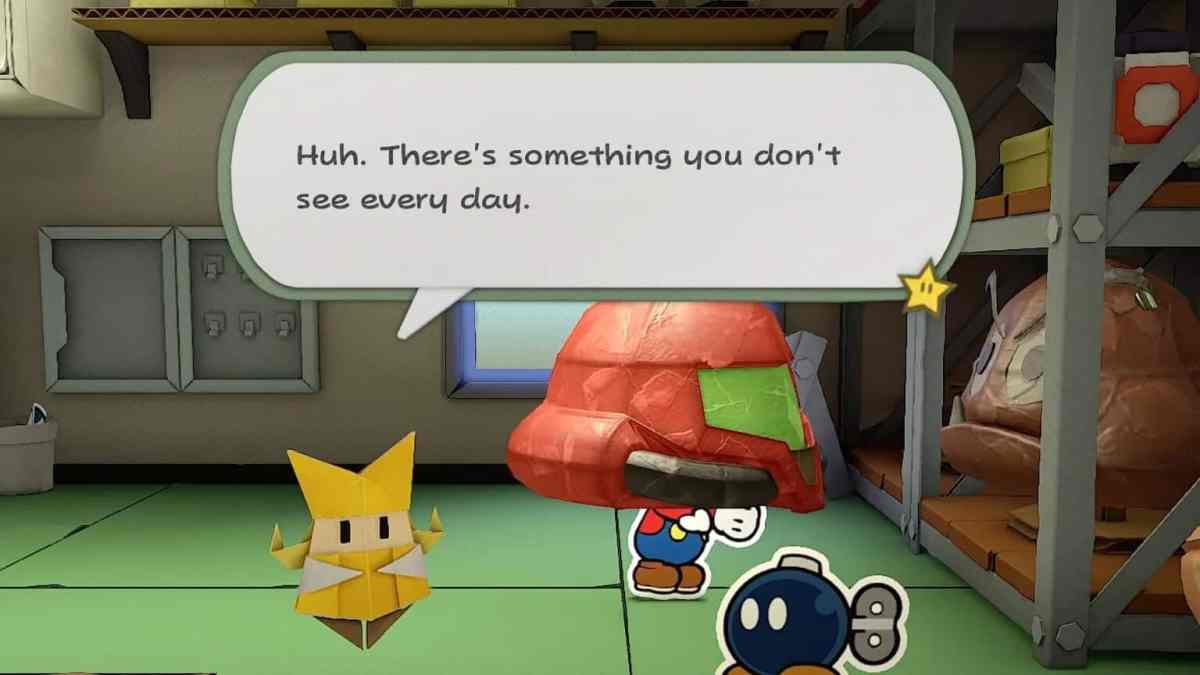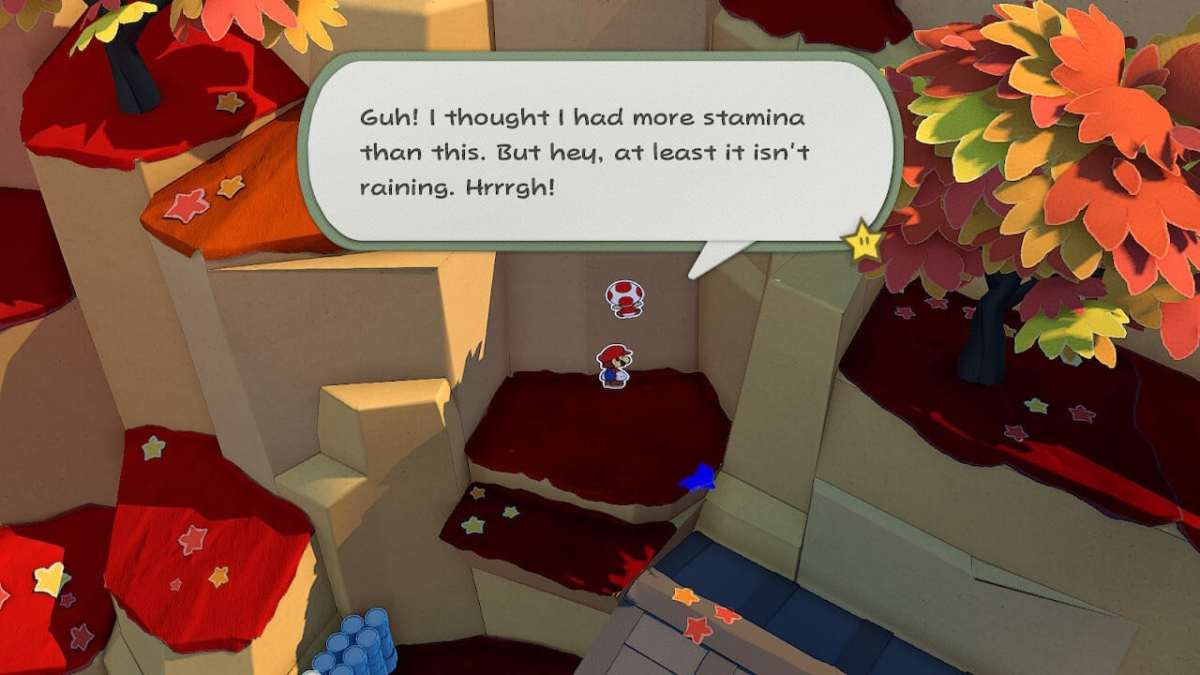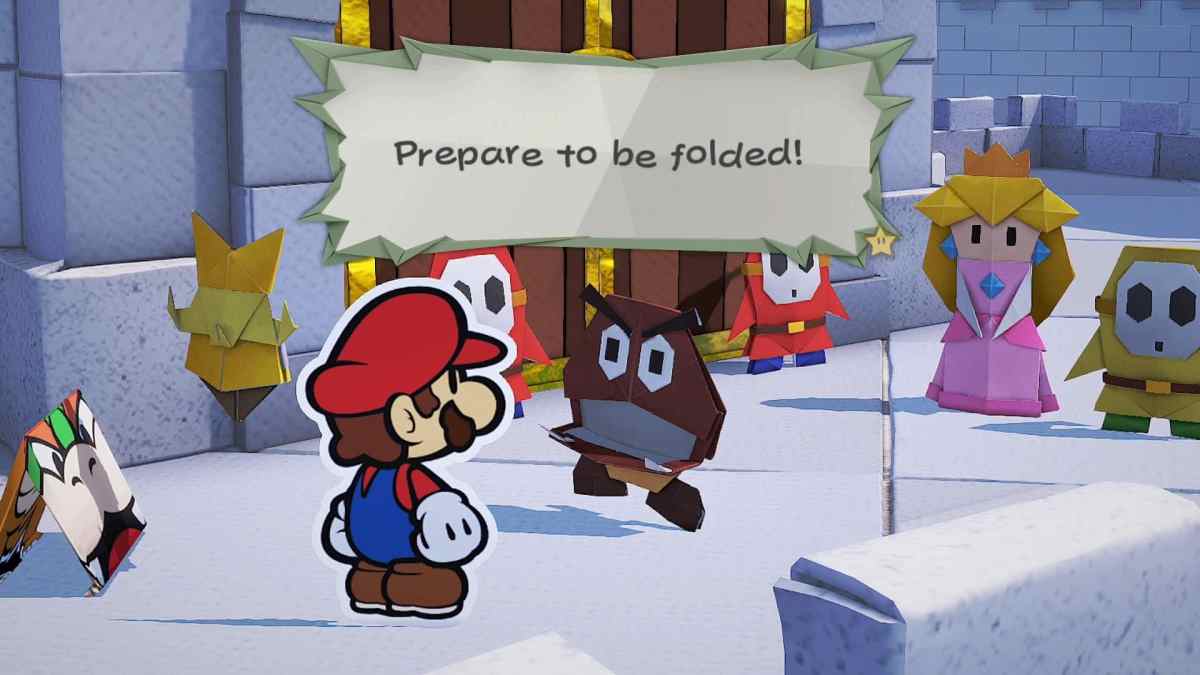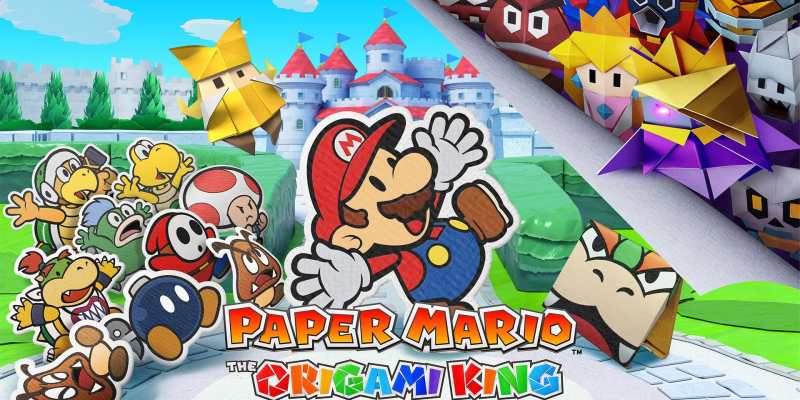Nintendo has had an understandably strange 2020. Its main tentpole has been Animal Crossing: New Horizons, which is currently the best-selling game of the year in Japan to date and continues to see a constant stream of free and much-appreciated updates. Alongside this, we saw the first Pokémon Sword and Shield DLC expansion drop late last month. But besides these two, it’s been a relatively quiet year for Nintendo, with only rumors, brief glimpses, and nebulous dates on what we might see on Switch this fall and beyond into 2021.
However, Nintendo saved its biggest surprise of the year for May, when it revealed that not only did Paper Mario: The Origami King exist, but that it would be releasing in just two months from its announcement. This kind of tiny runway is rare in video games, but certainly appreciated in an era where it’s common to wait the better part of a decade for anticipated games like Cyberpunk 2077. Aside from The Origami King’s short gestation period, it seems like the main discussion leading up to launch wasn’t about what the game was, but rather what it wasn’t.
I understand that we all pine for a Mario RPG that channels the energy of Legend of the Seven Stars and brings back puffy Mallow, Pinocchio-esque Geno, and that pervert Booster. Or a true sequel to The Thousand Year Door that revives those nostalgic memories of the GameCube’s short-lived heyday. But until then, we have to settle for what we’ve got. And luckily for us, what we have in 2020 is Paper Mario: The Origami King, which, despite some of its mechanical shortcomings, manages to deliver an incredible experience for one simple reason — it’s the funniest game in Nintendo history.

I don’t say that lightly. Nintendo has been known for memorable characters, solid writing, and particularly great localization over the past few decades. The writing in the Paper Mario games has always shined, going all the way back to the pre-Paper days of Super Mario RPG on the SNES. The WarioWare series was built on creative non-sequiturs, strange characters, and an abundance of charm. And of course there’s EarthBound, which has one of my absolute favorite scripts in video game history. But even with all of this, I genuinely believe that Paper Mario: The Origami King is the pinnacle of Nintendo’s humor.
Literally every single interaction you have in the game is just brimming with charm, creativity, and humor. There are a few factors that help bolster this consistency. First and foremost is Olivia, Mario’s new sidekick for this adventure. Her mix of sweet naivete and infectious wonderment over everything and everyone you come across provides countless amazing observations and interactions. Her inability to remember your Bob-omb partner’s name, which leads to her calling him pretty much every imaginable name that begins with the letter B, is particularly fantastic. She never intrudes on your adventure and instead only adds to it. In a way, she’s the anti-Navi from Ocarina of Time.
But Olivia only works because the world around her is so full of character, particularly in the form of the hundreds of Toads you find flattened, folded, rolled up, and just generally hidden across the Mushroom Kingdom. Whenever you come across one and save them, you’re treated to a brief interaction that somehow manages to paint a perfect picture of that Toad’s specific personality in only a handful of words. Some discuss the existential dread of their prior predicament, some deliver puns that make you groan so much that they cycle all the way around back to being clever, and others take a more fourth wall-breaking approach to things.

On Autumn Mountain, you’ll find one Toad attempting to climb up a particularly steep cliffside. When you speak with him, he’ll reply, “Guh! I thought I had more stamina than this. But hey, at least it isn’t raining.” Anyone who played through Breath of the Wild will see this as a clear reference to both the game’s incredible stamina-based climbing mechanics and the much-denounced rainstorms that made the act of climbing oftentimes impossible. I wouldn’t have expected Nintendo to take a shot like this at one of its own games, but the self-awareness is fantastic.
The final element of why the game’s writing is so effective is Mario himself. Mario’s patented silence makes him half observer, half participant in the chaos of the world around him. The way he sort of just goes with the flow of Olivia’s enthusiasm, the Toads’ strangeness, or the horrifying nature of the origami enemies themselves makes each situation all the funnier.
And this humor is only strengthened by some surprising moments of actual emotion and weight. Whether it’s one of the unexpected musical numbers scattered about your adventure, the occasional run-in with Luigi who seems to be having his own side adventure, or the shocking sacrifice one of your companions makes for the good of the journey, Mario’s nonplussed attitude towards the madness of the world around him makes it shine all the brighter.

Honestly, The Origami King has expanded what I thought a Mario game could be, which in itself is an extremely Mario thing to do. He raced in Kart, battled in Smash, partied in Party, and played just about every sport under the sun. In this sense, Paper Mario was always about marrying the platformer with more traditional RPG mechanics. But while this new game might have a similar exterior to those that came before it, it’s something very different at its core. Paper Mario: The Origami King isn’t an RPG at all, but rather an adventure game that has more in common with LucasArts classics like Day of the Tentacle, The Secret of Monkey Island, and Grim Fandango.
Paper Mario: The Origami King isn’t perfect. The non-boss battles can get a bit tedious, there’s minimal customization, and it lacks any sort of in-depth RPG systems. Which is because it pretty much isn’t one. But what The Origami King lacks in those areas, it more than makes up for in characters, situations, and incredible writing that stand tall among not just its Nintendo peers, but any other game ever made.
